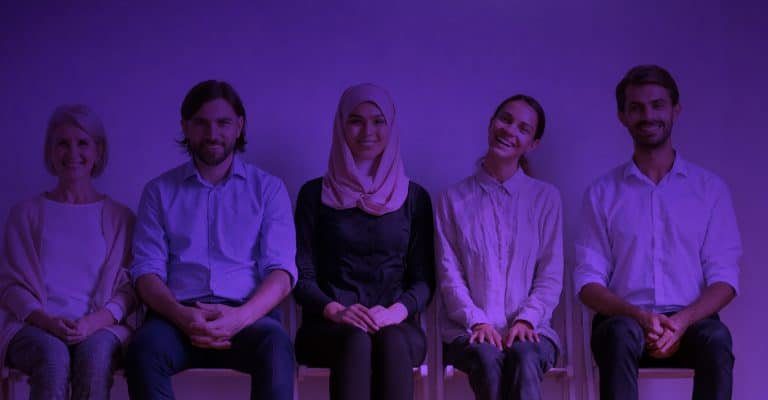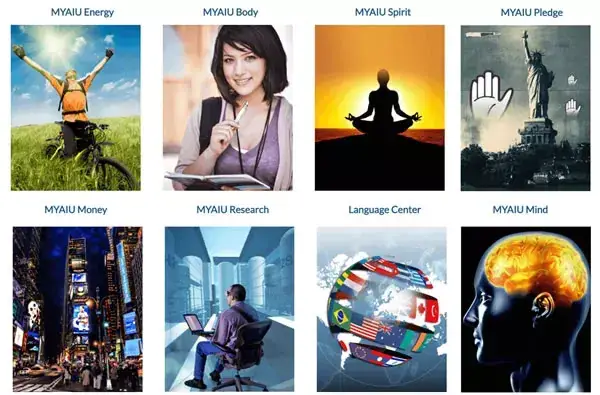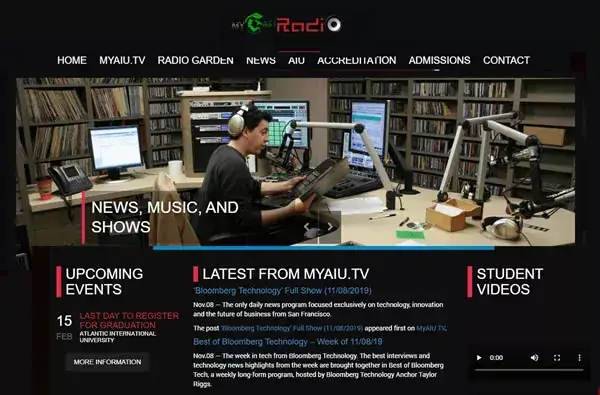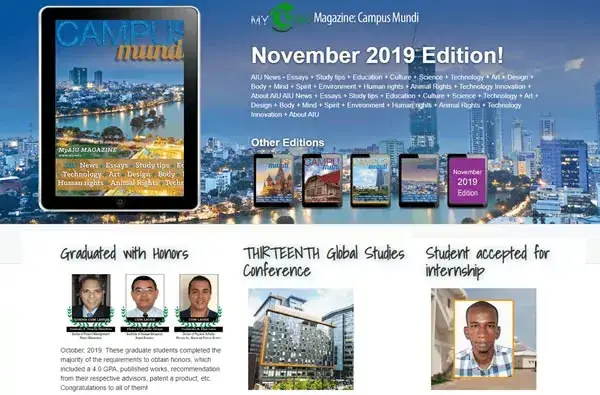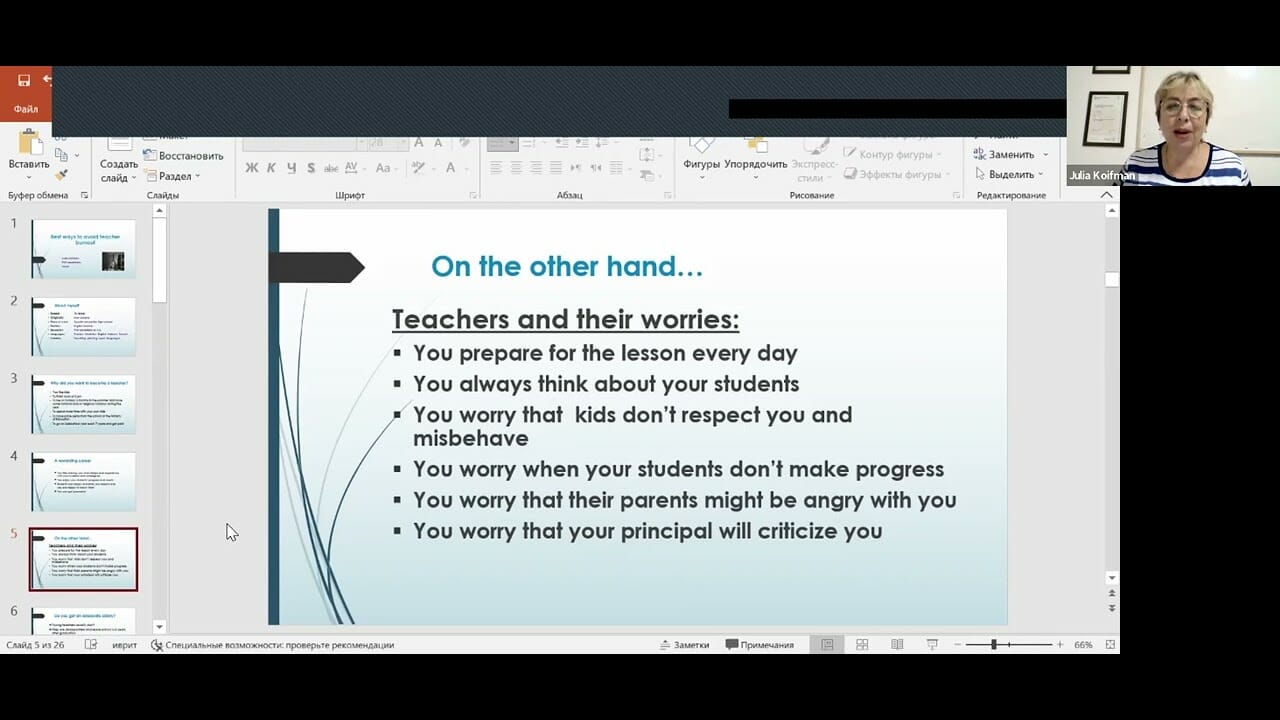- RESEARCHDistance Learning at AIU is enhanced by vast academic resources and innovative technologies build into the Virtual Campus: Hundreds of self-paced courses with video lectures and step by step lessons, thousands of optional assignments, 140,000 e-books, the Social Media & Networking platform allowing collaboration/chat/communications between students, and MYAIU develop students holistically in 11 areas beyond just academics.
- PROGRAMS OFFERED
- Areas of Study
- Courses and Curriculum
- Open Courses
- Register for a Program
- Associate Program
- Associate in Addiction Counseling
- Associate in Agriculture Food And Resources
- Associate in Anti Terrorism Security
- Associate in Behavior Analysis In Special Education
- Associate in Bioethics
- Associate in Climatology
- Associate in Cultural Theological Communication
- Associate in Culinary Arts
- Associate in Ecotechnology
- View all Associates Programs
- Bachelor Program
- Bachelors in Community Development
- Bachelors in Environmental Science
- Bachelor in Education (B.Ed, BS)
- Bachelors in Economics
- Bachelors in Entrepreneurship
- Bachelors in Financial Administration
- Bachelors in Human Resource Management
- Bachelors in Linguistics
- Bachelors in Nutritional Science
- Bachelors in Occupational Health and Safety
- Bachelors in Psychology
- View all Bachelor Programs
- Doctorate Program
- Doctor | of Biology (PhD)
- Doctorate in Business Administration (DBA, PhD)
- Doctor of Economics (PhD)
- Doctor of Electrical Engineering (D.Sc, PhD)
- Doctor of Finance (PhD)
- Doctorate in International Relations
- Doctorate in Information Technology (D.Sc)
- Doctor of Legal Studies (PhD)
- Doctor of Project Management (PhD)
- Doctor of Sociology (PhD, D.Sc)
- Doctorate in Sustainable Natural Resources Management
- View all Doctorate Programs
- Master Program
- Postdoctoral Program
- Postdoctoral in Animal Science
- Postdoctoral in Anti Terrorism Security
- Postdoctoral in Behavior Analysis In Special Education
- Postdoctoral in Bioethics
- Postdoctoral in Blockchain Technology and Digital Currency
- Postdoctoral in Business Management
- Postdoctoral in Cloud Computing
- Postdoctoral in Computer Engineering
- View all Postdoctoral Programs
AIU offers a wide range of majors in areas including the Arts, Business, Science, Technology, Social, and Human studies. More than 120 degrees and programs are available for adult learners at the associate’s, bachelor’s, master’s, doctoral and postdoctoral level. - VIRTUAL CAMPUS
Distance Learning at AIU is enhanced by vast academic resources and innovative technologies build into the Virtual Campus: Hundreds of self-paced courses with video lectures and step by step lessons, thousands of optional assignments, 140,000 e-books, the Social Media & Networking platform allowing collaboration/chat/communications between students, and MYAIU develop students holistically in 11 areas beyond just academics.
- ALUMNI
The world is YOUR campus!”, that is the message of AIU’s month magazine Campus Mundi. Hear the voices and see the faces that make up AIU. Campus Mundi brings the world of AIU to you every months with inspirational stories, news and achievements by AIU members from around the world (students and staff are located in over 200 countries).
Doctorate in Early Childhood Education
School of Social and Human Studies
Academic Freedom to Discover Your Purpose
Open Curriculum Design at Atlantic International University
The Doctorate in Early Childhood Education offers the necessary research tools to improve educational methodologies focused on early childhood. The graduate of this program will be able to pursue and promote the full realization of the child in early childhood through the development of intelligence, creativity, scientific and technological interest, physical-emotional development, and the practice of productive work in the classroom.
The evidence provided by research in the fields of Psychology, Nutrition, and Neurosciences indicates that the first years of life are decisive in the formation of intelligence, personality, and social behaviors, so this profession has acquired a growing social, family, and political importance for the benefits it offers to children.
Our program goal only requires some students to study the same subjects and use the same books and learning materials as every other student. If you are a purpose-driven individual who wants to elevate your life and make a solid contribution to the world, then this doctoral program is for you.
Courses & Topics in Early Childhood Education
Welcome to AIU’s Doctorate in Early Childhood Education program! Our cutting-edge, open, and agile curriculum delves into crucial areas such as child development, educational psychology, curriculum design, and policy analysis. Led by expert faculty, this program offers an immersive learning experience, empowering you to shape the future of early childhood education. Join us on a transformative journey to become a leader in this vital field.
- General Pedagogy
- Statistics Applied to Education
- Philosophy of Education
- Psychology Applied to Education
- Sociology of Education
- Child Development
- Writing Techniques
- Comparative Education
- General Didactics II
- Research Methodology I
- Educational Planning and Programming
- Evaluation of Learning I
- Research Methodology II
- School Legislation
- Child Development II
- Educational Guidance
- Psychology of Learning
- Communication and Language
- Expression and Creativity I
- Early Childhood Learning Methodology
- Educational Administration and Organization
- Educational Informatics
- Mathematics I
- General Philosophy
- General Psychology
- General Sociology
- General Didactics I
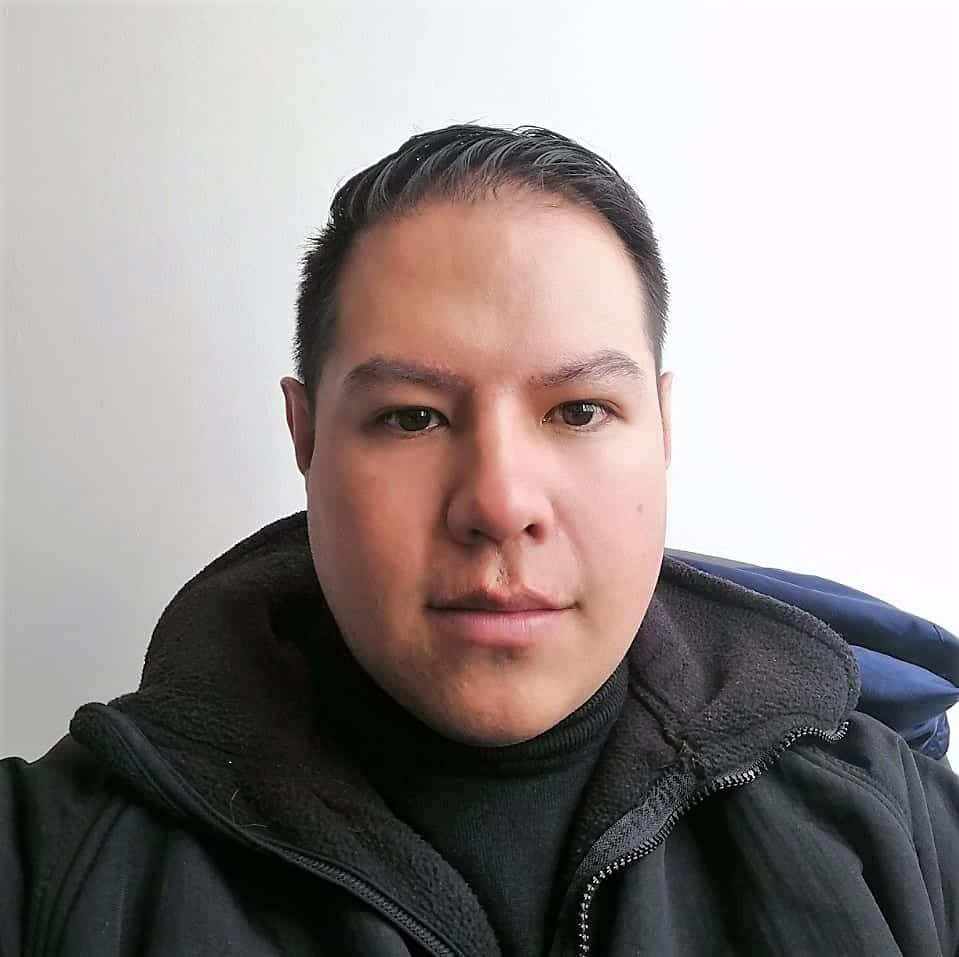
Orientation Courses
At AIU, we are committed to shaping visionary educators and researchers who will lead the way in early childhood education. Our orientation courses are meticulously designed to provide a strong foundation and essential skills for your doctoral journey. Through these courses, you will delve into the historical, psychological, and sociological aspects of early childhood education in “Foundations of Early Childhood Education” and soon become unique & unrepeatable, as we aim to make you.
- Communication & Investigation
- Organization Theory
- Experiential Learning
- Academic Evaluation
- Fundament of Knowledge
- Fundamental Principles
- Professional Evaluation
- Development of Graduate Study
Research Projects in Early Childhood Education
Our Doctorate in Early Childhood Education at AIU is designed to foster groundbreaking research that shapes the future of education, especially in the critical domain of early childhood learning. As we embark on this journey, we are proud to present a diverse array of research projects, each meticulously crafted to explore and address early childhood education’s multifaceted challenges and opportunities.
- Doctoral Dissertation Project
- MBM900 Doctoral Proposal
- MBM902 Doctoral Dissertation (15000 words)
Publication – AIU values the significance of knowledge sharing. Each Early Childhood Education doctoral graduate is strongly encouraged to publish their research papers. Whether online in the public domain or through reputable global journals, this dissemination enriches the academic community and contributes profoundly to the field. Embracing these avenues, our graduates actively shape the future of education, one impactful paper at a time.
Doctorate in Early Childhood Education Dissertation Defense
The Doctorate in Early Education Dissertation Defense at AIU marks a pivotal moment in the academic journey of our scholars. In this rigorous and intellectually stimulating environment, our doctoral candidates showcase their extensive research, demonstrating a deep understanding of the complexities within early education. Under the guidance of esteemed mentors, the doctorate in early childhood education scholars present their innovative findings, defend their methodologies, and engage in scholarly discourse.
Are You Ready for a Doctorate in Early Childhood Education at AIU?
Register Now
AIU Student Experience: Doctorate in Early Childhood Education
Our commitment to fostering an unparalleled academic experience is at the core of our doctoral program. At AIU, we understand that pursuing a doctorate is not just about acquiring knowledge but also about the holistic development of aspiring researchers and educators. In our vibrant learning community, you will be immersed in a nurturing environment where intellectual curiosity thrives, innovative research flourishes, and collaborative learning takes center stage.
Here, the journey to a doctorate in Early Childhood Education is more than just a process; it’s a transformative expedition, equipping you with the expertise, critical thinking skills, and scholarly depth needed to shape the future of early education. From engaging lectures by distinguished faculty members to hands-on research opportunities and a supportive network of peers, your experience at AIU will be characterized by academic rigor, mentorship, and a shared passion for advancing the field. Join us as we embark on this educational odyssey together, empowering you to make a meaningful impact in Early Childhood Education and beyond.
Community & Social
At AIU, distance doesn’t mean isolation; it signifies opportunity. Through our Virtual Campus, Mobile App, and cutting-edge technologies, we knit together a vibrant community that defies geographical boundaries. In this dynamic online program, you’re not just a student; you’re part of a network thriving on interaction. Engage with fellow students, esteemed alumni, and knowledgeable faculty at symposiums, conferences, webinars, and competitions. Dive into MYAIU, AIUTV, and AIULINK, where connections happen effortlessly.
Whether it’s the versatile Curriculum Builder Tool, enlightening Merlin Media Center with a wealth of academic resources, or our innovative CampusAPP providing access to your program anytime, anywhere – AIU ensures you’re always connected. On AIULINK, our virtual social hub, explore connections based on majors, research interests, and industry expertise. Immerse yourself in Live Chats, Virtual Laboratories, and enriching language sessions. AIU doesn’t just offer education; it crafts a unique University of One experience where technology bridges gaps and human connections flourish. Join us in this digital realm where your story matters, and together, we explore the 13 dimensions beyond academics that shape our humanity and personal growth.
Contact Us Today!
Begin Your Journey!
AIU’s Summer of Innovation and Growth gives you the ability to earn up to $5000 in tuition credit by completing free lessons and courses.
Whether you’re looking to acquire new skills, advance your career, or simply explore new interests, AIU is your gateway to a world of opportunities. With free access to 3400 lessons and hundreds of courses the ability to earn credits and earn certificates there’s no better time to start learning.
Join us today as a Guest Student and take the first step towards a brighter, more empowered future.
Explore. Learn. Achieve.
Academic Resources
In an age where education knows no bounds, Atlantic International University’s Virtual Campus emerges as a beacon of limitless knowledge. Here, students don’t just learn; they thrive. With over 25 innovative tools meticulously designed to nurture growth, motivation, and inspiration, AIU’s Virtual Campus is a sanctuary for ambition. Step into our groundbreaking Virtual Reality 3D immersive experience, where learning transcends boundaries, inviting you into a world of endless possibilities.
At AIU, we understand that education is not confined to classrooms; it’s a global venture. Our students are equipped with a treasure trove of academic resources, empowering them to transform dreams into tangible realities. Imagine having a library at your fingertips housing 260,000 books and over 30 million peer-reviewed articles, journals, and publications. That’s the power of AIU’s Online Library.
Virtual Campus
Complete assignments online or offline at your convenience with 24/7 access to distance learning through AIU’s Virtual Campus. Step by Step guides including videos, tutorials, live webinars and examples for each course. All materials can be access on all web browsers as well as via AIU's Mobile App which brings all the features of the Virtual Camus to your Mobile Device.
My AIU Elements
MyAIU’s primary goal is to go beyond Academics, it looks to guide students through 11 elements that are key to living life optimally in all aspects. By identifying and reflecting on these key areas, an opportunity arises to holistically address them, through positive change, habits, reinforcement and tools to keep students on their chosen path.
AIU TV & Radio
The students have the opportunity to produce, edit and host their own show reaching a worldwide audience, the AIU community and giving notice of their expertise/passion in the subject. AIUTV & AIU Radio allow students to explore new ways to communicate, develop a platform and form potential collaboration with likeminded individuals.
AIU Campus Mundi
AIU Campus Mundi is a monthly magazine that gathers the most notable news and information about the university and its members in one convenient place. The magazine allows our community to be well informed, involved and keep in tough regardless of their geographic location. AIU Campus Mundi publishes, news, research, events, awards, academic achievements.
Graduation Ceremony
Each year AIU organizes graduation ceremonies where the students can assist and share their experiences with fellow students and academic members Participation in the ceremony is optional, the day’s events include conferences, research presentations, group meetings, networking, lunch and formal dinner.
Symposiums & Webinars
AIU’s symposiums and conference days stand as dynamic platforms where the brilliance of our students takes center stage. These events are more than mere showcases; they are vibrant arenas for students to illuminate their work, share their expertise, and contribute knowledge to the global community.
Live Classes
Embark on a transformative educational journey with our Doctorate in Early Childhood Education program at AIU, where learning transcends boundaries and embraces real-time interaction. Immerse yourself in the world of academia with two live classes every day, designed to provide dynamic, engaging, and interactive learning experiences. Our expert faculty, combined with cutting-edge technology, brings the classroom to your doorstep, ensuring that you stay connected, inspired, and actively engaged in your studies. Experience the power of real-time learning at AIU, where knowledge knows no limits and your educational aspirations are nurtured daily.
Special Projects
AIU’s Doctorate in Early Childhood Education offers exclusive special projects that challenge norms and foster innovation. These initiatives encourage deep exploration into progressive methodologies and societal contexts within early education. Guided by mentors, students pioneer groundbreaking research, addressing contemporary challenges. These projects enhance academic growth and empower students to lead transformative change, making significant contributions to the field. At AIU, these initiatives shape future education leaders, creating impacts beyond classrooms.
Become an Expert in Early Childhood Education at AIU
Avail Our Scholarships
Career Center
Welcome to the gateway of endless opportunities – the Career Center tailored exclusively for our Doctorate in Early Childhood Education graduates at AIU. Here, we understand that education is not just about acquiring knowledge; it’s a stepping stone toward a fulfilling career dedicated to shaping young minds and revolutionizing education.
Job Opportunities
The job description for a Doctorate in Early Childhood Education is extensive and involves several roles.
- Curriculum Development: Develop and design innovative and effective early childhood education curricula, ensuring alignment with educational standards and best practices.
- Research Expertise: Conduct in-depth research in early childhood education, exploring trends, methodologies, and pedagogical approaches to contribute valuable insights to the academic community.
- Teaching and Instruction: Deliver advanced-level courses to graduate students, providing specialized instruction in child development, educational psychology, and early learning strategies.
- Mentorship: Mentor and supervise graduate students, guiding their research projects, theses, and dissertations, fostering a supportive and intellectually stimulating learning environment.
- Program Evaluation: Assess the effectiveness of educational programs, implementing evaluations and making data-driven recommendations for continuous improvement.
- Policy Advocacy: Advocate for policies and initiatives related to early childhood education, collaborating with educational institutions, government agencies, and community organizations to drive positive changes in the field.
- Professional Development: Engage in continuous professional development, staying updated with the latest research, methodologies, and technologies in early childhood education.
- Community Engagement: Collaborate with local communities, parents, and stakeholders to promote the importance of early childhood education, organizing workshops, seminars, and outreach programs.
Employment Opportunities in Early Childhood Education
- Academic Institutions: Work as professors, lecturers, or researchers in universities, colleges, and research institutions, shaping the next generation of educators and conducting advanced research in early childhood education.
- Educational Consultant: Offer expertise to educational organizations, government bodies, or private companies, guiding curriculum development, teacher training, and academic policies related to early childhood education.
- School Administrators: Assume leadership roles as principals, directors, or administrators in early childhood education centers, overseeing staff, curriculum implementation, and overall program development.
- Policy Analyst: Contribute to educational policymaking by working with government agencies, non-profits, or think tanks, analyzing policies, conducting research, and advocating for evidence-based early childhood education initiatives.
- Curriculum Developer: Create and enhance educational materials, textbooks, online courses, and interactive learning resources tailored for early childhood education, ensuring they align with academic standards and promote effective learning.
- Researcher: Conduct research in educational institutions, non-profit organizations, or government agencies, focusing on areas such as child development, learning methodologies, or educational technologies, to contribute valuable insights to the field.
- Program Evaluator: Evaluate the effectiveness of early childhood education programs, both within schools and community organizations, using qualitative and quantitative methods to assess outcomes and recommend improvements.
- Non-Profit Organizations: Work with NGOs and non-profit organizations dedicated to early childhood education, participating in community outreach, developing educational programs, and advocating for resources and support for underprivileged children.
- Professional Development Trainer: Organize workshops, seminars, and training sessions for early childhood educators, providing professional development opportunities to enhance their teaching skills, classroom management, and understanding of child psychology.
- Author and Speaker: Write books, articles, or blogs on early childhood education topics, or become a public speaker, sharing expertise at conferences, webinars, and educational events, becoming a thought leader.
- Entrepreneurship: Start and manage your early childhood education center, preschool, or educational technology company, implementing innovative teaching methods, curriculum, and technologies tailored for young learners.
Tools for Early Childhood Education Professionals
There are different incredible tools the Doctorate graduates in Early Childhood Education can use to grow in their careers and make a remarkable difference in society.
- Academic Databases: Access scholarly articles, research papers, and educational journals from databases like JSTOR, ERIC, and Google Scholar to stay updated with the latest research in early childhood education.
- Research Software: Use statistical analysis tools like SPSS or qualitative research software like NVivo to analyze research data, ensuring accurate and meaningful interpretations.
- Reference Management: Utilize reference management software such as EndNote or Zotero to organize research papers, format citations, and create bibliographies efficiently.
- Online Surveys and Questionnaire Tools: Platforms like SurveyMonkey or Qualtrics enable researchers to design and distribute surveys, collecting valuable data from parents, educators, or other stakeholders.
- Educational Software: Explore educational software like Moodle or Blackboard for creating online courses, interactive lessons, and virtual classrooms, enhancing the learning experience for both educators and students.
- Collaboration Tools: Use collaborative platforms like Google Workspace or Microsoft Teams for seamless communication, document sharing, and collaborative research efforts with fellow researchers and educators.
- Data Visualization Tools: Tools like Tableau or Infogram help create visually engaging charts, graphs, and infographics to effectively represent research findings.
- Library Resources: Utilize online library resources from universities or institutions, accessing e-books, journals, and research articles specific to early childhood education.
- Digital Learning Platforms: Explore digital learning platforms like Coursera or edX to enroll in specialized courses related to early childhood education, enhancing knowledge and skills.
- Educational Blogs and Podcasts: Follow reputable early childhood education blogs and podcasts to stay informed about industry trends, teaching strategies, and research findings shared by experts and practitioners.
- Social Media and Online Communities: Engage with professional communities and educators on social media platforms like Twitter, LinkedIn, or specialized forums, fostering networking opportunities and knowledge exchange.
- Literature Review Tools: Use tools like Mendeley or EndNote to manage references, organize literature reviews, and identify gaps in existing research for informed academic contributions.
Associations for Early Childhood Education
Different associations you can engage with to go to the next level of your career are listed below.
- National Association for the Education of Young Children (NAEYC) – USA
Website: naeyc.org
- World Organization for Early Childhood Education (OMEP)
Website: worldomep.org
- European Early Childhood Education Research Association (EECERA)
Website: eecera.org
- Association for Childhood Education International (ACEI)
Website: acei.org
- Australian Council for Educational Research (ACER)
Website: acer.org
- Canadian Association for Young Children (CAYC)
Website: cayc.ca
- British Association for Early Childhood Education (Early Education)
Website: early-education.org.uk
- Early Childhood Australia
- Website: earlychildhoodaustralia.org.au
- Association for the Development of Education in Africa (ADEA) – Working Group on Early Childhood Development
Website: adeanet.org
Fulfill Your Early Childhood Education Dream with Us
Submit Your Application
Doctorate in Early Childhood Education Requirements
Our program is tailored for passionate individuals with a master’s degree and at least five years of practical experience in early childhood education. At AIU, exceptional educators drive positive change, so we seek candidates with a proven commitment to the field. Our rigorous admission requirements are designed to attract professionals dedicated to transforming early childhood education through advanced research, pedagogical innovation, and policy advocacy. Suppose you’re ready to embark on a transformative journey armed with expertise, dedication, and a hunger for positive impact. In that case, AIU welcomes you to join our vibrant community of scholars and practitioners. Together, let’s shape the future of early childhood education and create lasting change in the lives of young learners.
How Can You Apply?
- Fill in your personal and educational details by clicking this link
- Paste your resume
- Review your application and submit
Financial Support & Scholarships
AIU is dedicated to ensuring that your educational aspirations are within reach with one of the best early childhood education programs. We understand students’ financial challenges, so we have curated a selection of scholarships tailored to diverse needs and situations. Share your details with us, and by submitting your inquiry, you take the first step toward discovering scholarships that perfectly match your needs. Let us help you navigate the possibilities, making your academic journey at AIU enriching and financially feasible.
How Much Does a Doctorate in Early Childhood Cost Per Year?
Begin your academic adventure at AIU with the assurance of affordability. Enrolling in our Doctorate in Early Childhood Education program comes at a total cost. We offer a flexible monthly payment plan to enhance convenience. This approach is designed to make your journey toward a doctoral degree attainable and financially stress-free. AIU is committed to providing outstanding education without compromising your financial well-being. Be part of a community where exceptional learning seamlessly merges with adaptable financial solutions, ensuring your educational dreams are within reach.
FAQs
What Can You Do with a Doctorate in ECE?
With a Doctorate in Early Childhood Education (ECE), you can pursue careers as a university professor, educational consultant, curriculum developer, policy analyst, or research director. You can also lead educational initiatives, advocate for policy changes, and shape the future of early childhood education.
How to Get a Doctorate in Early Childhood Education?
To get a Doctorate in Early Childhood Education, you have to take below steps:
- Earn a Bachelor’s Degree: Start with a bachelor’s degree in early childhood education or a related field.
- Pursue a Master’s Degree: Obtain a master’s degree in early childhood education, education, or a specialized area within ECE.
- Gain Professional Experience: Acquire relevant work experience in the field, preferably several years, to strengthen your application.
- Research Programs: Explore universities offering doctoral programs in ECE. Look for programs aligned with your research interests and career goals.
- Prepare Application Materials: Prepare application documents, including transcripts, letters of recommendation, a statement of purpose, and possibly a writing sample.
- Secure Funding: Investigate scholarships, grants, fellowships, or assistantships to fund your doctoral studies.
- Complete Coursework: Fulfill the required coursework, often including advanced research methods and ECE specialization courses.
- Comprehensive Exams: Pass comprehensive exams demonstrating your knowledge in your chosen study area.
- Proposal and Research: Develop a research proposal for your dissertation. Conduct in-depth research, gather data, and analyze findings.
- Write Dissertation: Write and defend your dissertation based on your research. This typically involves presenting your results to a committee of faculty members.
- Graduate: Successfully defend your dissertation and complete any additional requirements to earn your Doctorate in Early Childhood Education.
How Many Years Is a Doctorate In Early Childhood Education?
The duration of a Doctorate in Early Childhood Education (ECE) typically ranges from 3 to 7 years, depending on various factors such as the specific program, the student’s enrolment status (full-time or part-time), and the time taken to complete the dissertation or research project. Full-time doctoral programs usually take 3 to 5 years, including coursework, comprehensive exams, and dissertation research and writing. Part-time students may take longer, often extending to 6 or 7 years, allowing for a more flexible schedule to accommodate work or other commitments. It’s essential to check the specific requirements and expected duration of the doctoral program you are interested in, as these can vary between universities.
What is the Highest Degree in Early Childhood Education?
The highest degree in Early Childhood Education (ECE) is typically a Doctorate in Early Childhood Education. This can be either a Doctor of Philosophy (Ph.D.) or a Doctor of Education (Ed.D.) degree, both terminal degrees representing the highest level of academic achievement in the field. These doctoral programs focus on advanced research, theoretical knowledge, and policy analysis, and often involve the completion of a dissertation or significant research project. Earning a doctorate in early childhood education opens doors to leadership positions, advanced research opportunities, and specialized roles in academia, policy-making, and educational consulting within early childhood education.
What are the Benefits of Getting a PhD in Early Childhood Education?
The benefits of getting a PhD in Early Childhood Education are:
- Expertise: Develop deep expertise in early childhood education theories, research methodologies, and practices.
- Leadership Roles: Qualify for leadership positions in academia, policy-making, and research institutions.
- Influence Policies: Contribute to shaping local, national, or international education policies and practices.
- Advanced Research: Conduct significant research addressing critical issues in early childhood education.
- Educational Consulting: Work as a consultant, advising schools, organizations, and governments on ECE strategies.
- Career Advancement: Open doors to high-level career opportunities and specialized roles in the education sector.
- Higher Earning Potential: Increase earning potential with a Ph.D., especially in academic and research-oriented positions.
- Impact Society: Make a lasting impact by improving early childhood education, benefiting children and communities

Contact Us
Atlantic International University
900 Fort Street Mall 905 Honolulu, HI 96813 info@aiu.edu
Quick Links
Home | Online Courses | Available Courses | Virtual Campus | Career Center | Available Positions | Ask Career Coach | The Job Interview | Resume Writing | Accreditation | Areas of Study | Bachelor Degree Programs | Masters Degree Programs | Doctoral Degree Programs | Course & Curriculum | Human Rights | Online Library | Representations | Student Publication | Sponsors | General Information | Mission & Vision | School of Business and Economics | School of Science and Engineering | School of Social and Human Studies | Media Center | Admission Requirements | Apply Online | Tuition | Faculty & Staff | Distance Learning Overview | Student Testimonials | AIU Blogs | Register for Program | Privacy Policy | FAQ




